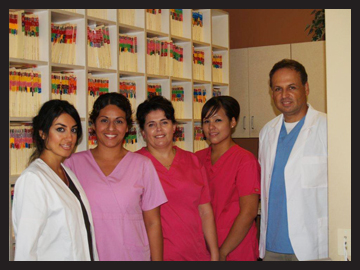 |
||||||||||||||||||
|
|
||||||||||||||||||
|
◄ Back to What´s New At Savon - Monthly Newsletter Home Page May 2022 NewsletterWhat´s New at Savon
Quote Of The Month: “If you put the federal government in charge of the Sahara Desert, in 5 years there‘d be a shortage of sand.” (Milton Friedman – American economist & statistician – 1912 – 2006) Congratulations To: To Your Health With Jourdin Hendershot: Allergic Rhinitis
If you have questions you would like to discuss with Jourdin, feel free to drop her an email by clicking here. Grandma´s Kitchen With Grandma C.: Breakfast Salad?(Yep, it‘s a thing and it‘s growing more popular!)
Brown bacon until slightly crisp, drain on a paper towel. Cut into 1 inch pieces. Boil potatoes for approximately 7-8 minutes, drain and let cool. Place lettuce and spinach leaves in a large bowl. Top with bacon, potato halves, eggs avocado, tomatoes and parmesan cheese. Add Salt and pepper to taste. Drizzle with salad dressing and toss lightly to coat. Recipe will serve 4 people. Enjoy your healthy breakfast! And remember, if it looks and smells good, eat it!! If you have a recipe that you would like to share with Grandma C., drop her an email by clicking here.
The practice is located at 3229 East Greenway, Suite 103, Phoenix, Arizona 85032. The phone number is 602-923-0700. We also invite you to visit them on the web. Crazy, Zany Facts We Bet You Didn´t Know
Dental Talk - A Member Blog Forum:
These are just a few of the topics. Our blog site contains many other interesting topics. Please join us!! Questions From Our MembersA. Hoffman of Seattle, Washington asks:“ I‘ve just read that there was a Ransomware attack on the American Dental Association and the members data has been leaked. Does this affect me and if so, how? ” Savon’s AnswerYes it is true that there was an attack on the ADA by a ransomware crew calling themselves “Black Basta”. Although this is a serious situation, it primarly affects dentists that are members of the ADA and more importantly the ones that use the ADA platform to help manage their accounts.Because the ADA is a group developed for the dental field, most patients would never input any personal information on their site so the “common person” should have nothing to worry about. That being said and using an abundance of caution, Savon Dental Plan has removed all links from our website to the ADA website for the time being. Tooth Talk With Tommy The Wisdom Tooth Why Our Ancestors Had Healthy Mouths Without FlossingA direct reprint of an article by Dr. Alvin Danenberg, DrBicuspid.com contributing writer
Peer-reviewed papers show how diet affects oral healthMillenia after the stone age, peer–reviewed medical papers are uncovering just how much diet can impact the health of the mouth. Below are three papers on that very topic.Study 1: The impact of the stone age diet on gingival conditions in the absence of oral hygiene (J Periodontol, May 1, 2009, Vol. 80:5, pp. 759-768) In 2009, Dr. Stefan Baumgartner led a study set in Switzerland. In this controlled experiment, 10 individuals were not able to brush or floss for 30 days. Their diet consisted of primal foods endemic to their specific area in Switzerland about 5,700 years ago. No processed foods were available. These participants had to gather and forage for most of their food. At the beginning and end of the study, researchers measured the gum space between the teeth and the degree of bleeding. Cultures of bacteria were also taken from the dental plaque around the teeth and from the tongue. After the experiment, the researchers were surprised with the results. Participants experienced a significant decrease in bleeding in the gum tissue and a significantly healthier gum space around the teeth. Amounts of dental plaque increased greatly, but pathogenic bacteria did not increase either in the plaque or on the tongue. Dental plaque and other oral microbes were in a state of balance at the end of the four–week experiment. Bottom line: A diet that completely removes overprocessed foods reduces the signs and symptoms of gum disease. This type of diet allows the interactions of bacteria in dental plaque to become and stay balanced and healthy. Study 2: An oral health optimized diet can reduce gingival and periodontal inflammation in humans — a randomized controlled pilot study (BMC Oral Health, July 26, 2016, 17, e28) In 2016, Dr. Johan Woelber and colleagues performed a randomized clinical trial. Only people who had signs of gum disease and were eating a diet heavily based on processed carbohydrates were selected for the study. The group enrolled 15 participants: 10 in the experimental group and five in the control group. As far as oral hygiene was concerned, all 15 participants were instructed not to clean between their teeth with dental floss or interdental brushes. However, they did not have to change the way they brushed their teeth with a toothbrush. The experimental group also had to change their diet to one that consisted of foods low in processed carbohydrates, rich in omega–3 fatty acids, and abundant in vitamins C and D, antioxidants, and fiber. The control group was instructed to not change their eating habits. Signs of gum disease were recorded at the start of the four–week study and at the end. At the conclusion of the trial, all disease parameters decreased significantly in the experimental group by approximately 50% from the starting point. In contrast, in the control group, all inflammatory markers increased from the starting point. Bottom line: A diet that eliminates free sugars and processed grains and includes healthy foods can reduce the signs and symptoms of gum disease. Therefore, a healthy diet can maintain dental plaque in a healthy state. Study 3: Diet and dental caries: The pivotal role of free sugars reemphasized (J Dent Res, October 2015, Vol. 94:10, pp. 1341-1347) In a paper published in 2015, Dr. Sheiham and an associate reported on the pivotal role of free sugars in dental decay. The paper evaluated many previous research studies and came to the following conclusions:
Bottom line: Dental caries is a diet–mediated disease. Free sugars are the primary and necessary factors in the development of dental decay. Is keto the key?Based on their healthy diet full of bioavailable nutrients, our primal ancestors most likely were in a state of dietary ketosis most of the time but still cycled out of ketosis when their level of carbohydrates increased.Dietary ketosis — also known as physiologic ketosis, or nutritional ketosis — is a healthy metabolic state in which your body burns fat instead of carbohydrates for fuel. It creates a clean energy source for the body and reduces the inflammation caused by eating a diet high in carbohydrates. Ketosis is characterized by elevated serum ketones and normal blood glucose and blood pH. In dietary ketosis, blood ketone levels generally remain between 0.5–3 mmol/L. You can get into ketosis through methods that increase the breakdown of fatty acids by the liver, including through fasting, prolonged exercise, or a high–fat/moderate protein/low carbohydrate way of eating. Ketosis has numerous health benefits, but most importantly, it allows for a healthy gut microbiome and a healthy gut lining, which improves the immune system. A robust immune system helps maintain a healthy and diverse garden of microbes in the mouth. With a balanced oral microbiome, tooth decay and periodontal disease hardly ever become a problem. But our bodies are not designed to stay in ketosis forever. Our metabolism needs to cycle out of ketosis and burn carbs cyclically to improve insulin metabolism, which allows for metabolic flexibility. If you or your patients are experiencing issues with your dental health, look at the diet first and then at other environmental factors. The takeaway for us is that we can mimic the ancestral way of eating as well as avoid toxic elements to maintain our gut and dental health. Eating this type of high–fat diet can do wonders for your mouth, brain, and entire body. Dr. Alvin Danenberg has retired from the private practice of periodontics in Bluffton, SC. He continues to be on the faculty of the College of Integrative Medicine and created its integrative periodontal teaching module. He also spent two years as chief of periodontics at Charleston Air Force Base earlier in his career. His website is drdanenberg.com. The comments and observations expressed herein do not necessarily reflect the opinions of Savon Dental Plan or DrBicuspid.com, nor should they be construed as an endorsement or admonishment of any particular idea, vendor, or organization. Until next time; brush, floss and keep smiling! |
||||||||||||||||||






